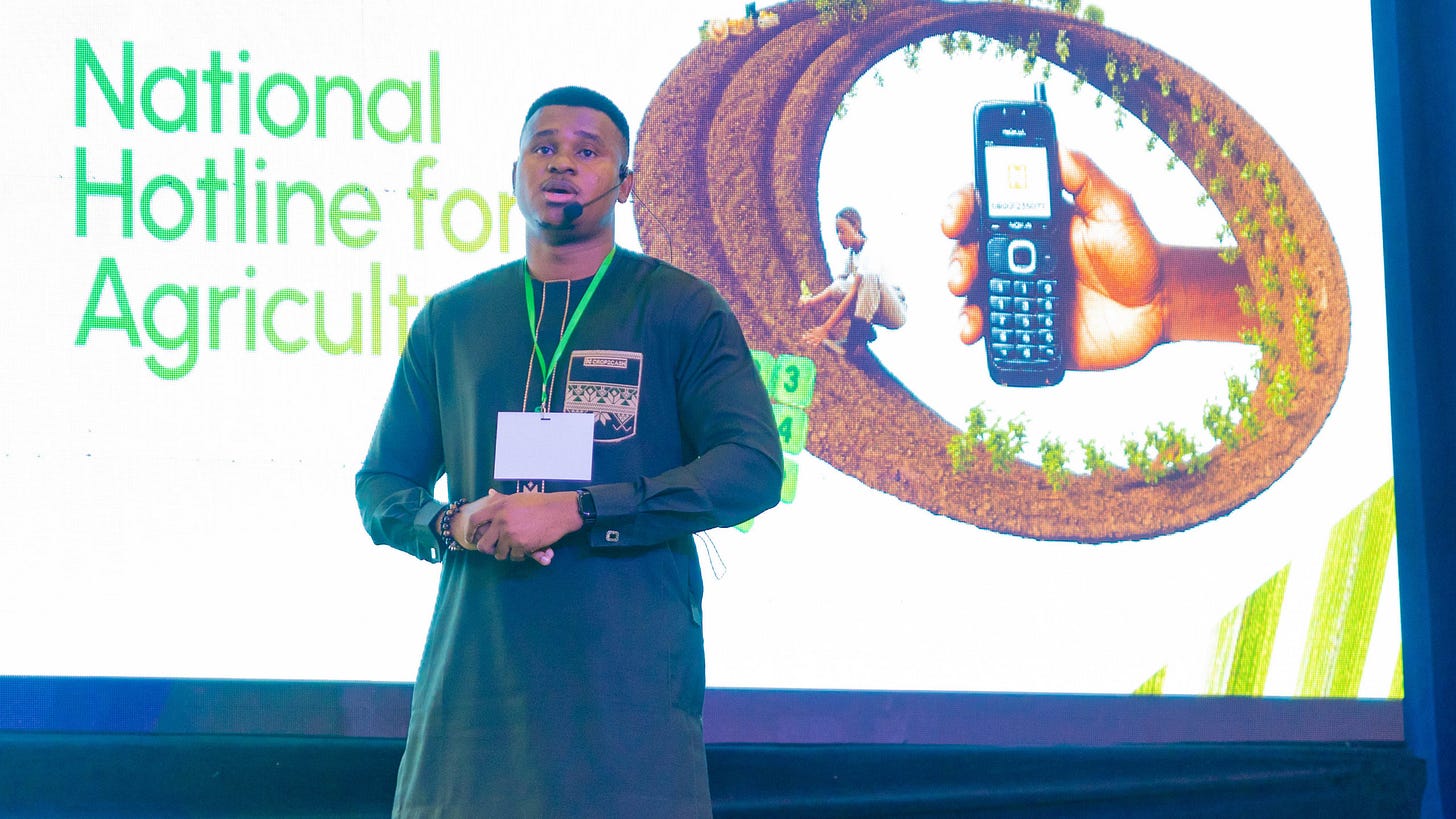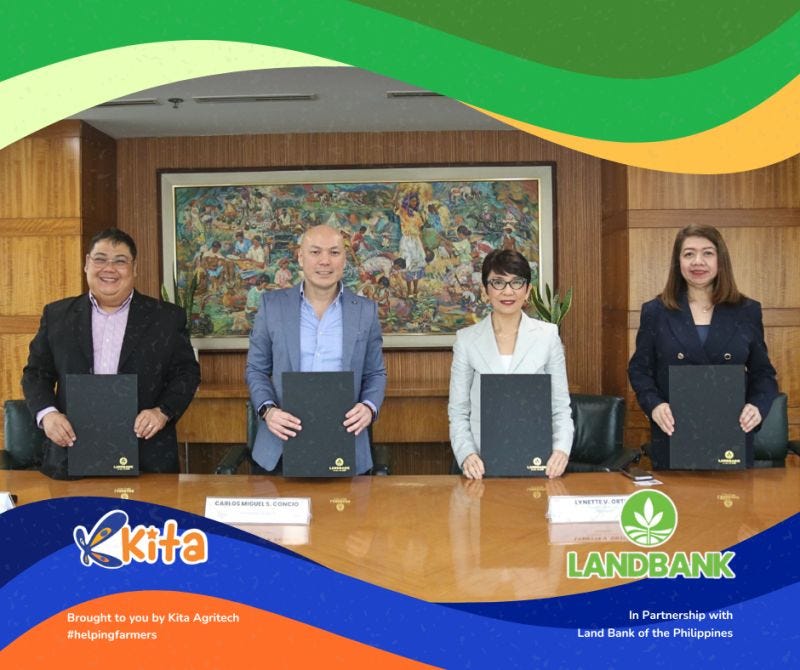Digital Agriculture in LMICs - 17 Oct #69
Nigeria's Crop2Cash brings GenAI hotline to Kenya; Farmdar gets funding in Pakistan; FPO digitalisation on the rise in India
08/10/24
Pakistan’s Farmdar raises Pre-Series A from Silicon Valley
Pakistan-based agritech Farmdar, a precision agriculture company, has raised a pre-Series A round (undisclosed amount) led by Silicon Valley’s Moment Ventures, an early stage VC. Existing investor Indus Valley Capital also participated in the round. This is the first Silicon Valley fund led investment round in a Pakistani startup this year. Launched in 2021, Farmdar uses AI and space technologies to create data and insights to help farmers and agribusinesses increase productivity and sustainability.
The startup states that it is able to provide coverage with his data and insights for 350 million acres globally. It also states to have helped its B2B customers to provide precision agriculture services to 200,000+ farmers. Companies working with Farmdar include international players like Bayer Crop Science and Syngenta as well as local companies such as input providers Engro Fertilizers Ltd and FFC and agribusinesses like sugar mills.
11/10/24
Crop2Cash brings GenAI service to Kenya
The National Hotline for Agriculture, a generative AI service developed by Nigerian agritech Crop2Cash, is now available in Kenya. Farmers can call a local toll-free number (+254 7099 24473) to receive personalised advice by an AI-powered extension agent on topics ranging from climate-smart farming to pest management. The service is accessible in English and Swahili. In a statement, Crop2Cash said that it is looking for partners from the private sector working directly with smallholder farmers (e.g. agribusinesses), as well as for governments and NGOs, to build new partnerships and scale the solution across Africa.
The National Hotline for Agriculture was launched last July in Nigeria in partnership with the GSMA Innovation Fund, which has funded Crop2Cash through a grant. Founded in 2018, Crop2Cash supports farmers to adapt their farming practices through climate-smart farming content. It also helps farmers to manage financial risks through a digital marketplace, connecting them to drought-resistant maize seeds.
Photo credit: GSMA, Crop2Cash
14/10/24
FAO launches Digital Villages Initiative in Zimbabwe
The Food and Agriculture Organization of the United Nations (FAO) has launched the Digital Villages initiative in Zimbabwe. The initiative is anchored to the Fostering Digital Villages (FDiVi) flagship programme. FDiVi wants to facilitate the delivery of innovative agricultural extension services for increased productivity, enhanced market access, and advance inclusive rural transformation. It will also support local farmers, extension officers, agro-dealers, and processors, particularly youth and women.
Zimbabwe’s Digital Village will be implemented in the Mhondoro-Ngezi and Bikita districts, where digital hubs will be equipped with digital tools and services including free internet, computers and digital literacy training materials. The pilot project is targeting 5,000+ farmers. FAO states that pilot activities have been launched in Ghana, Kenya, Liberia, Malawi, Niger, Nigeria, Senegal, Somalia and Zimbabwe.
16/10/24
FPO digitalisation initiatives on the rise in India
Several new initiatives that foster the digitalisation of “Farmer Producer Organisations” (FPOs) have been announced in India. Agritech Arya.ag, a provider of a B2B market linkage platform for the grain value chain, launched the “200 Smart FPOs initiative” providing FPOs with a range of digital tools including AI-powered crop advisory to enable data-driven decision-making, and digital record-keeping to ensure traceability and transparency throughout the value chain.
In another announcement, agritech Wavar announced the extension of its Integrated Pest Management (IPM) solutions to 50+ FPOs covering 1,000+ acre pilot plots across the states of Maharashtra, Madhya Pradesh (MP), Karnataka, and Gujarat. The initiative aims to help FPOs meet European Union quality standards and enhance profitability by reducing the cost of cultivation and by tapping into higher-value markets.
In addition, Mastercard announced a collaboration with global agribusiness ADM to onboard the latter’s FPOs, collection centres and farmers in Maharashtra onto Mastercard’s Farm Pass. Part of Mastercard's Community Pass services, FarmPass is an app-based interoperable solution that establishes a digital identity for commercial farmers. The solution digitises payments and farmer financial histories, increasing market linkages and access to financial services.
15/10/24
Kita partners with local bank to boost farmer finance in the Philippines
Filipino agritech Kita has partnered with government-owned Land Bank of the Philippines. Through the partnership, Land Bank will extend to farmers engaged by Kita the AGRISENSO Lending Program, which provides affordable financing to support investment in sustainable practices and innovative technologies. Established in 2021, Kita provides input financinging to farmers and buys their produce (fresh fruits and vegetables), which is then delivered to restaurants, hotels and grocers. The startup operates three warehouses and a fleet of cold chain-enabled delivery trucks.
Photo credit: Kita AgriTech
Exactly a year ago, Kita raised USD 3 million in a seed funding round co-led by Gentree Fund, a fund focused on high growth companies in the Philippines, and early-stage VC Altara Ventures. The Philippine is the second-largest producer of fresh vegetables in Southeast Asia. The agriculture sector makes for approximately 10% of the GDP.
16/10/24
Good reads: CGIAR outlines barriers to adoption of digital farmer advisories
CGIAR has published a paper highlighting behavioural barriers to farmer adoption of digital agriculture advisory services. According to Beanstalk AgTech (whose data is quoted in the paper), only about 10% of the 500 million smallholder farmers in LMICs are active users of at least one digital service for agriculture. The CGIAR paper titled “Error 404, farmer not found” describes 18 potential behavioural barriers that should be checked before implementing mobile information services for smallholder agriculture.
Among the 18 behavioural barriers, the study highlights that farmers are reluctant to take calls from unknown numbers, and that they are also reluctant or unable to install new smartphone apps. Another behaviour commonly encountered is farmers ignoring SMS or deleting them right away. The paper points that 40% of farmers ignore SMS due to fraud fears and 15-20% switching off phones to save battery. It highlights the importance of multi-channel approaches (SMS, voice, apps) and of using trusted networks to overcome these barriers.





